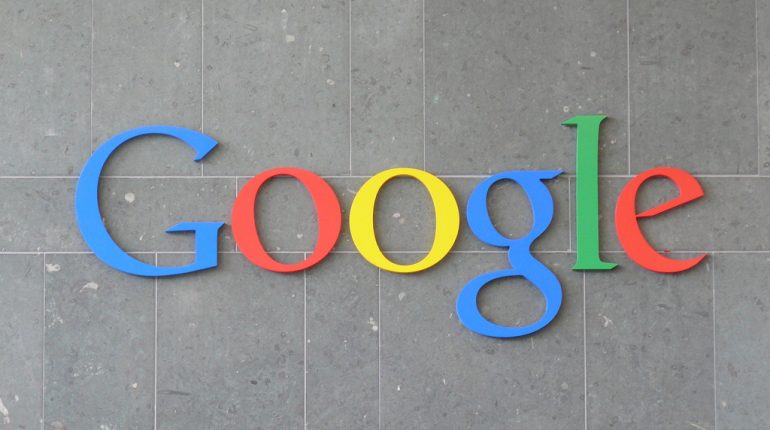
Searching to get to the top of Google
In the digital age, where information is at our fingertips, being visible on the internet is crucial for businesses, bloggers, and content creators. Google, being the predominant search engine, holds the key to online visibility. Achieving a high rank on Google’s search results can significantly impact your online presence.
As you explore this topic further, you can decide to read some resources on digital marketing best practices. This includes reading articles and interviews with SEO experts and marketers similar to Tom De Spiegelaere, and other professionals in the online space. Their insights into optimizing content, building backlinks, and leveraging social media are eye-opening for you.
The consensus across digital marketing professionals is that rising above ever-intensifying online competition requires an analytical, targeted approach from you. By continually expanding your knowledge and judiciously applying best practices, you can improve your website visibility and online impact significantly. Those able to adapt through ongoing self-education can unlock immense value in the digital marketplace. And that can include you!
In this article, we will unravel some strategies to help you climb the ranks and reach the coveted top spots on Google searches.
Understanding Google’s Algorithms
Before diving into strategies, it’s essential to grasp the basics of how Google’s algorithms work. Google employs sophisticated algorithms that consider numerous factors to determine the relevance and quality of a webpage. These algorithms are designed to provide users with the most accurate and valuable information.
One critical factor is relevance. Google assesses how well a webpage matches a user’s search query. Additionally, the search engine evaluates the quality of content, user experience, and credibility of the website. To ascend the search rankings, you must align with these criteria.
Create High-Quality and Relevant Content
Content is the backbone of any successful online strategy. Crafting high-quality, relevant content is fundamental to attracting and retaining visitors. Google’s algorithms favor content that provides value, answers user queries, and engages the audience.
Ensure that your content is well-researched, informative, and easy to understand. Use keywords naturally and avoid keyword stuffing, as Google penalizes this practice. Regularly update your content to keep it fresh and aligned with current trends and information.
Optimize for Keywords Strategically
Keywords play a pivotal role in search engine optimization (SEO). Identify relevant keywords related to your content and integrate them naturally within your text. This helps Google understand the topic of your content and improves its chances of appearing in relevant search queries.
Research long-tail keywords – specific, longer phrases that are more likely to match user intent. Long-tail keywords can be less competitive, making it easier for your content to rank higher for those queries.
Conduct an SEO Campaign
Optimizing keywords is critical, but executing an entire SEO strategy requires a broad range of expertise. Whether it has to do with seo for franchises or sole proprietors, without a good strategy you cannot get anywhere. You may feel up to tackling parts of it alone to start. Conduct research to identify relevant target keywords and phrases. Audit your existing content to pinpoint optimization opportunities around those terms. Update page titles, meta descriptions, image alt text, and other on-page elements.
Attempting full-scale keyword research, technical optimization, and content creation on your own, however, can prove overwhelming. If you find your SEO project becoming more than you can handle solo, know when to seek help. You can get in touch with agencies like Sandbox Media where SEO experts have the ability to conduct an effective SEO strategy. These professionals can also optimize site architecture, speed, and indexing in the best way possible. The right SEO guidance tailors methods to suit your business goals over both the short and long term.
Improve Website Performance
User experience is a crucial aspect that Google takes into account when ranking websites. A slow-loading website can deter users and negatively impact your search rankings. Optimize your website’s performance by compressing images, using browser caching, and employing content delivery networks (CDNs) to ensure faster page loading times.
Additionally, make your website mobile-friendly, as Google prioritizes mobile-first indexing. Responsive design ensures that your site adapts to different devices, providing a seamless experience for users on smartphones, tablets, and desktops.
Build High-Quality Backlinks
Backlinks, or incoming links from other websites, are a key factor in determining the authority and credibility of your site. Google views backlinks as a vote of confidence in your content. However, not all backlinks are created equal.
Focus on acquiring high-quality, relevant backlinks from reputable websites within your niche. Avoid engaging in practices such as buying links, as Google penalizes such attempts to manipulate rankings. Instead, foster genuine relationships within your industry and contribute valuable content to earn backlinks naturally.
Enhance Your Website’s Metadata
Metadata, including titles and meta descriptions, is crucial for communicating the content of your web pages to both users and search engines. Craft compelling and relevant meta titles and descriptions that accurately represent the content of each page.
Include your target keywords naturally within these elements to signal their relevance to search engines. An enticing meta description can improve click-through rates, signaling to Google that your content is valuable to users.
Leverage Social Media
While social media may not directly impact Google’s algorithms, it can indirectly contribute to your website’s visibility. Share your content on social media platforms to increase its reach and encourage engagement. The more your content is shared and discussed on social media, the more likely it is to attract backlinks and improve its search rankings.
Regularly Monitor and Adapt Your Strategy
Google’s algorithms are dynamic and subject to frequent updates. Stay informed about industry trends, and algorithm changes, and adjust your strategy accordingly. Regularly monitor your website’s performance using tools like Google Analytics to identify areas for improvement.
It is no easy task to work out how to get a website to the top of the results thrown up by a search engine. And, that is where the role of SEO agencies (such as Victorious, for instance) comes in. With their dominant expertise in this field, they can get a website to rank higher in the search results. Google – which with 85% of the search-engine market in Britain is by far the dominant player – keeps tweaking how its algorithms read web pages and index them.
In conclusion, climbing to the top of Google searches requires a holistic approach. Create valuable, relevant content, optimize for keywords, enhance user experience, build high-quality backlinks, and stay informed about industry trends. By consistently implementing these strategies, you can improve your website’s visibility and ascend the ranks of Google’s search results, ultimately reaching a wider audience and achieving online success.




